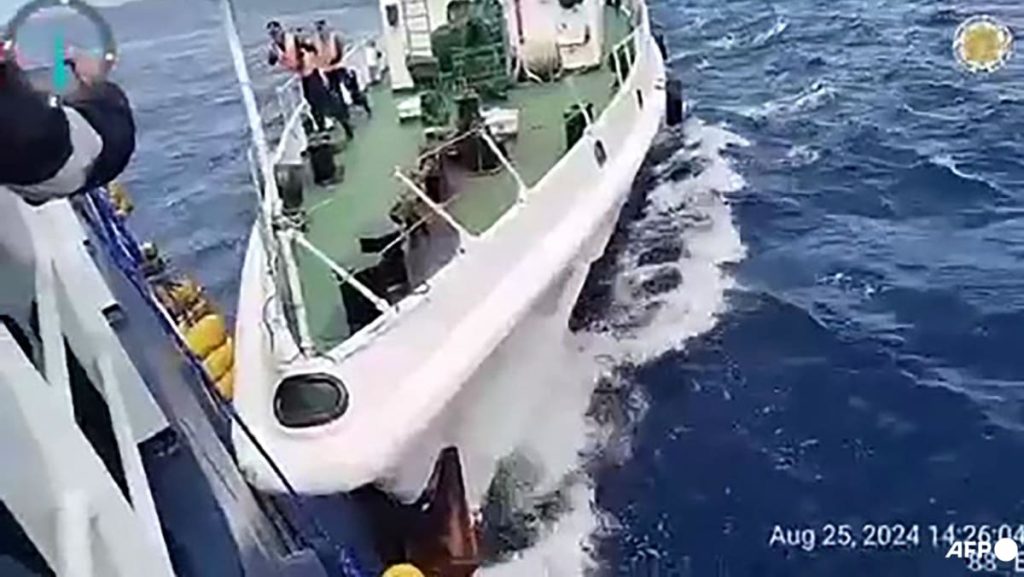China claims sovereignty over the South China Sea despite conflicting claims from neighboring countries. An international tribunal ruled in favor of the Philippines in 2016, invalidating China’s claims, but China refused to accept the decision. Despite this, recent high-level meetings between the Philippines and China have focused on managing maritime disputes and rebuilding trust.
In a recent incident, a Philippine naval ship stationed in the South China Sea experienced engine failure during a resupply mission due to aggressive maneuvers by Chinese vessels. The Philippines condemned these actions as illegal and called on Beijing to stop destabilizing regional peace and security. Additionally, the Philippines reported harassment by a Chinese fighter jet during a surveillance flight near the Scarborough Shoal, further escalating tensions in the region.
The United States, a treaty ally of the Philippines, also condemned China’s actions, particularly the deployment of flares from a China-occupied reef while a Manila aircraft was conducting patrols. The involvement of the US in supporting the Philippines adds to the complexity of the situation and raises concerns about the potential for further escalation between China and its neighbors in the South China Sea.
The South China Sea is a critical waterway for international trade, with billions of dollars in trade passing through its waters each year. The competing claims to sovereignty over this region have led to heightened tensions and frequent confrontations between China and its neighbors. The actions of China in asserting its claims have been met with pushback from countries like the Philippines, as they seek to protect their own interests in the region.
Despite efforts to resolve disputes through dialogue and diplomatic channels, incidents like the recent confrontation between China and the Philippines highlight the ongoing challenges in managing maritime disputes in the South China Sea. The involvement of key regional players like the US adds a layer of complexity to the situation and raises concerns about the potential for further escalation. Finding a peaceful resolution to these disputes remains a top priority for all parties involved to ensure stability and security in the region.
As tensions continue to simmer in the South China Sea, it is essential for all parties to exercise restraint and avoid actions that could lead to further escalation. The recent incidents between China and the Philippines underscore the delicate balance of power in the region and the need for continued dialogue and cooperation to address maritime disputes. Engaging in constructive dialogue and adhering to international law will be crucial in finding a peaceful resolution to the competing claims over the South China Sea.













